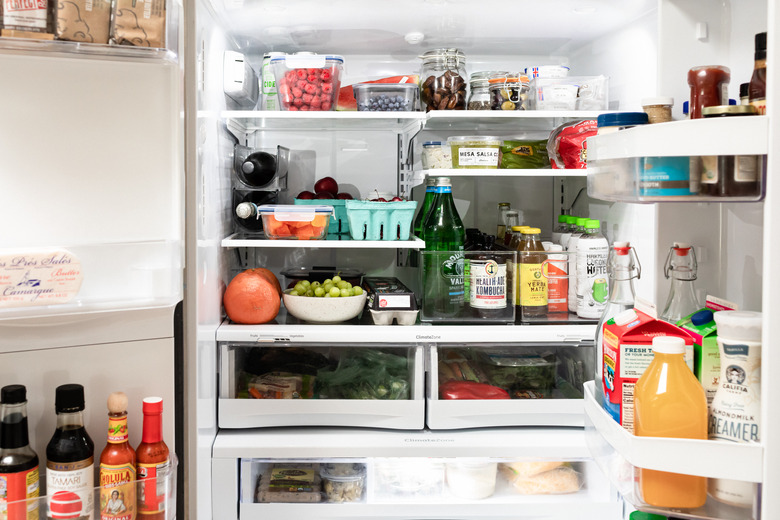7 Mistakes You're Probably Making With Your Refrigerator
We may receive a commission on purchases made from links.
Refrigerators are the heart of any kitchen. Along with providing a cold place to keep your food fresh for longer, they allow you to organize all of your perishables in one easy-to-access space.
However, no matter how awesome your fridge may be, if you aren't using it correctly, you're not reaping the full benefits of having one. From too low temperature settings to incorrectly storing leftovers and beyond, read ahead for seven surprisingly common mistakes you might be making with your refrigerator — and what to do instead.
1. You’re refrigerating stuff you shouldn’t.
1. You're refrigerating stuff you shouldn't.
If you thought you should be storing all of your perishable food items in your refrigerator, then it's time to think again. Starchy foodstuffs, like potatoes and bread, can turn sugary faster in cold climates, so you'll want to store them outside of the fridge. Additionally, cold air can also speed up the decomposition process for certain fruits and veggies, including melons, bananas, onions, tomatoes, mangoes, and apples — so they should be left on the counter instead.
2. You’re setting the wrong temperature.
2. You're setting the wrong temperature.
According to the U.S. Food & Drug Administration (FDA), the proper temperature for your fridge is at or below 40° F (4° C). Storing your food at a higher temp could lead to bacteria growth or worse, foodborne illness. Conversely, refrigerating certain foods at too low of a temperature (under 35° F) might cause them to freeze or at the very least, lose their flavor. If your fridge controls don't show you the actual temperature, the FDA recommends buying a freestanding appliance thermometer so you can monitor precisely how cold your refrigerator really is.
3. You’re not storing dairy correctly.
3. You're not storing dairy correctly.
While it may appear that your refrigerator is designed to hold your dairy products on the inside of the door, storing them there isn't doing you any favors. The inside of your fridge door is actually the warmest part of your refrigerator, because it's farthest from the cold air fan in the upper back, so anything stored there is bound to spoil faster. That's why it's smarter to store sugary drinks, condiments, and other processed foods there and move your milk, butter, and eggs to the chillier top shelf.
4. You’re storing leftovers incorrectly.
4. You're storing leftovers incorrectly.
As delicious as leftovers can be, if you're storing them incorrectly, you probably shouldn't be eating them. According to research from McGill University, you should avoid storing hot leftovers in deep dishes or plastic containers stacked on top of one another, because that will cause the food to cool slower — and spoil faster. So if you prefer to store your leftovers in plastic containers, make sure you separate them inside your fridge.
5. You’re not checking the seal.
5. You're not checking the seal.
Nothing warms a refrigerator up faster than a broken door seal. Make a habit of checking your fridge's seal — aka the rubber lining that surrounds the inside of the door — by closing the door on a small piece of paper or dollar bill and trying to pull it out. If it comes out easily, then it's time to replace your door seal.
6. You’re storing your meat too high.
6. You're storing your meat too high.
If you tend to store raw meat, poultry, and fish on the top shelf of your refrigerator then you may have a problem. The juices from uncooked meats and seafood can leak and drip onto other items in your fridge causing cross-contamination, so it's better to stash them on the lowest shelf instead.
7. You’re not cleaning it enough.
7. You're not cleaning it enough.
Your fridge is a magnet for bacteria, mold, and other contaminants — so don't wait until something smells funny to give it a proper cleaning. A deep cleaning every three months, which should include washing and sanitizing your crisper drawers and shelves, should suffice, as long as you wipe up spills right when they happen.
